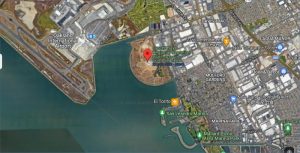OnlySky, Adam Lee, 4 March 2022: Against doomism, subtitled, “Don’t confuse ‘more dramatic’ for ‘more likely'”

This essay by Adam Lee aligns to the idea that people tend to favor beliefs that place themselves in a favored position — to support the psychological need to feel special. This extends to cosmic situations — that Earth is the center of creation, and so on — that Sagan undermined in his list of “great demotions” in his book PALE BLUE DOT, as described in my post of a few days ago. It also extends to metaphysical catastrophes, the way people like to think “the end of the world is near” if only because that places themselves at a special time in history, when they’re here to witness it! Thus certain religious folks have always predicted the end of the world, and/or the second coming of Christ, for millennia, on some grounds or another. It never happens. Hasn’t happened yet.
Still, currently there are a couple existential crises that really do seem different than anything that has come before. One, that’s existed for 50 years or more, is the threat of nuclear annihilation, even if only accidentally (and perhaps currently more likely on political grounds with the Russia invasion of Ukraine this year). Another, that’s working by gradually creeping up on us, is climate change, or climate catastrophe, which is happening so slowly that many people can, either through psychological denial, or selfishness, refuse to believe is happening. Yet the evidence —
Well, let’s read Adam Lee’s essay and see what he says.
He begins by mentioning climate change, COVID, and Christofascism.
These all make for vivid stories. You’ve probably watched movies or TV shows that depict these exact scenarios. And that’s precisely why we have to be careful when trying to judge how big a danger these things are. It’s called the fallacy of misleading vividness: an outcome that’s easier to picture seems more likely to us.
On top of that, the brain is more captivated by threatening scenarios than by rosy ones. Evolution gave us a built-in bias toward negative news. That may have been a valuable survival trait in a world where danger lurked on every side and we had to be prepared, but now it makes us easy prey for every dubious doomsayer on the internet. It’s a tendency that right-wing propaganda exploits to the fullest by parading a stream of imaginary boogeymen before their audience, keeping them at a perpetual simmer of fear and rage, where they’re most malleable.
My take on right-wing propaganda is if that extends the range of possible threats far beyond what is reasonable — to a population that is scared of everything different, to the point of paranoia.
Key point:
I try to bear in mind the mediocrity principle, the assumption that there’s nothing special or unique about our vantage point on the universe. This isn’t a law that can be proven, but a principle of scientific reasoning that we employ because it holds up more often than not, like Occam’s razor.
Humanity has survived many crises in the past, Lee points out, listing quite a number. If threats seem bigger today, so is our potential response. (He links this item, which goes to my point about “wise men” a year ago).
And so humanity will keep muddling through, he concludes.
People will continue to die in pointless, preventable tragedies; the poor will continue to get the short end of the stick; democracies will continue to be mired in gridlock and scandal; the media will continue to misinform and fearmonger. And in the meantime, people will get a little smarter; technology will get a little better; and the world will get a little more prosperous. That slow, incremental improvement, that inch-by-inch grasping for a better world, is the way progress almost always happens.
I am of two minds about this. I don’t usually read comments to anything, but I skimmed the comments to this piece and the first few all took some exception or another to Lee’s thesis and evidence.
On the one hand, the evidence for the drastic consequences of climate change seems overwhelming.
On the other hand, I’ve been amazed by the way people around the world, or at least in the US, have mostly gone on with their lives despite the ravages of COVID. Nearly a million dead in the US, over two years. Yet society marches on. Especially for those who don’t know anyone personally who has died of the disease. Is this a kind of resilience? A denial of big-picture consequences for the sake of getting on with one’s personal life? (Another kind of evolutionary adaptation?) Perhaps.
But climate change is sneaking up upon us all. There will be no escaping it, even if we don’t hear it slapping at our front door any time soon. I recently read the Wallace-Wells book, as I’ve mentioned, and will summarize its contents soon here on my blog…
\\
Endpiece
This weekend’s adventure was a walk around Oyster Bay Regional Shoreline, another East Bay Regional District Park, this on a peninsula just south of the Oakland Airport. A pleasant walk around the perimeter, seeing a few planes descending into the airport, and one Southwest plane taking off, over nearly an hour.
We only walked around the perimeter; there is a hilly area in the center with trees and picnic grounds and a sculpture, that we will have to visit another time.






